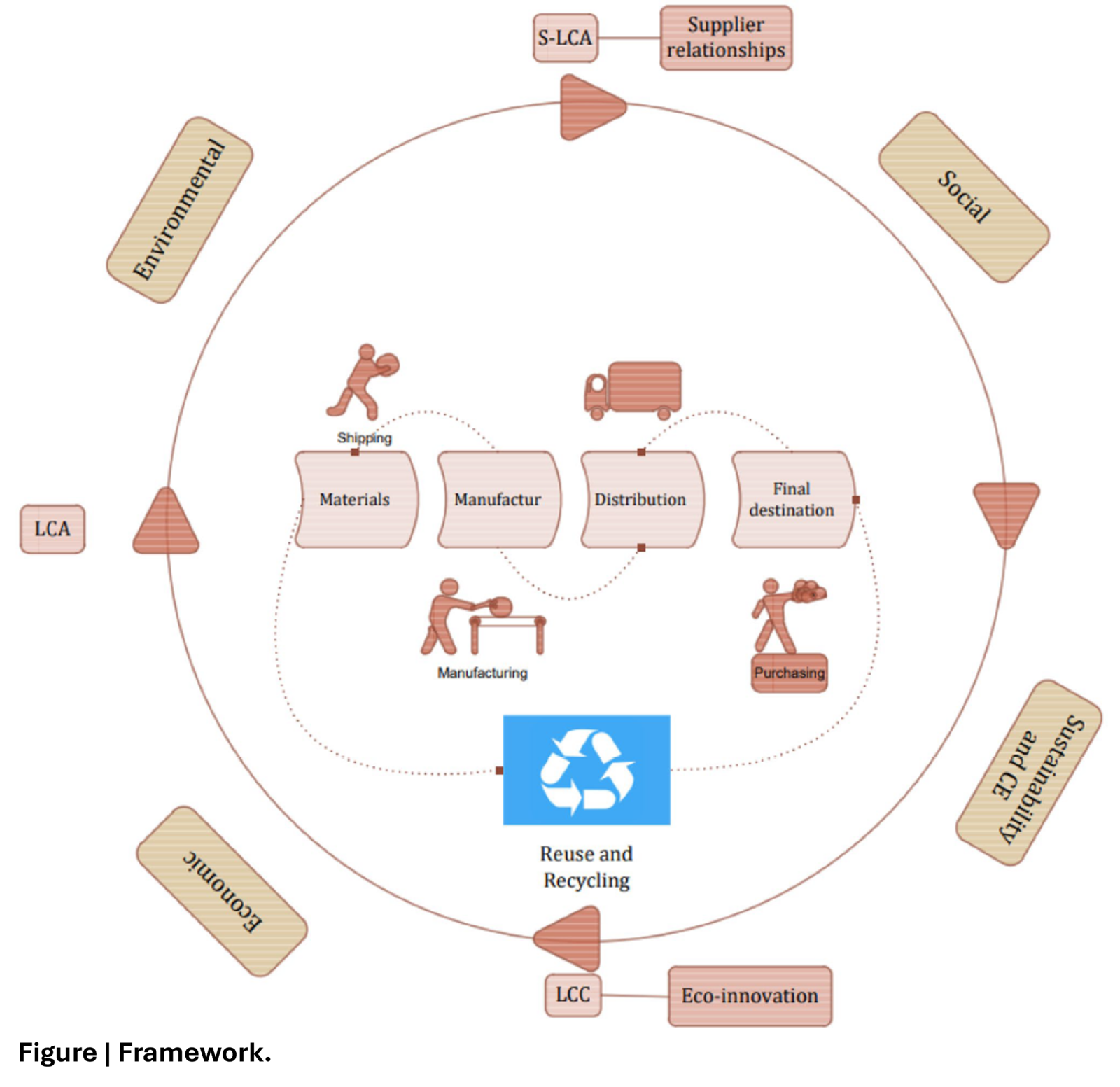March 2, 2022 | The International Journal of Life Cycle Assessment | Source |
Introduction: An Italy-based research team from the University of Tuscia and University of Rome conducted a systematic literature review to address the lack of a harmonized framework for selecting sustainability and circular economy (CE) indicators in the agri-food sector. Focusing on the Triple Bottom Line (environmental, economic, and social dimensions), the study highlights how inconsistent use of indicators and limited application of Life Cycle Thinking (LCT) tools—such as Social-LCA (S-LCA) and Life Cycle Costing (LCC)—undermine comparability across studies. Reviewing 99 peer-reviewed articles published up to early 2021, the authors provide an overview of existing indicators, examine their strategic applications, identify methodological gaps, and propose pathways toward a standardized measurement framework for agri-food systems.
Key findings: The review grouped indicators into 3 strategic clusters: Assessment-LCA (environmental impacts), Best practices (guidelines and frameworks), and Decision-making (business choices). Climate change was the most frequently examined issue, reflecting the “trilemma challenge” posed by agri-food activities. While the environmental pillar dominates, half of the 99 studies integrated all 3 Triple Bottom Line (TBL) dimensions, showing growing attention to holistic sustainability. Economic indicators—especially profitability and investment—were also prominent. Methodologically, LCA remains the dominant tool, but CE assessments are limited by scarce use of Social-LCA and LCC. The review highlights cooperation across supply chains and eco-innovation as critical dimensions for future indicator design. Advancing toward a harmonized framework requires integrated assessments, broader impact categories, and active stakeholder engagement, including policymakers, to align with international standards such as the SDGs. Future research should also expand quantitative metrics, as most existing evidence is based on qualitative case studies, to better guide sustainable and circular agri-food transitions.




